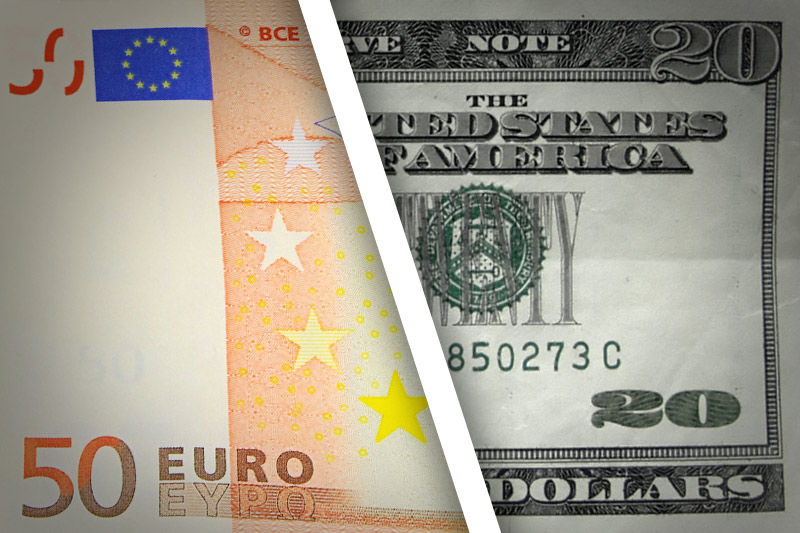Investing.com -- EUR/USD moved slightly higher on Tuesday as China spooked foreign exchange markets worldwide with an unexpected devaluation of the yuan, sparking concerns of a potential global currency war.
Separately, Greece agreed on the framework of a multi-year, €86 billion bailout from its international creditors, one officials hope can be completed before the deadline for a critical repayment of a loan expires next week. The deal comes nearly a month after the sides revived talks following a last-minute, historic accord in Brussels. Without the deal, it was feared the cash-strapped nation could default on its sovereign debt and bolt out of the euro triggering possible contagion throughout the zone.
EUR/USD wavered between 1.0961 and 1.1086 on Tuesday, before settling at 1.1042, up 0.0023 or 0.21%. The currency pair closed above 1.10 for the second straight day after closing below the key technical level for 10 previous sessions. The euro is relatively flat against the dollar over the last month, following a minor rally during the last several sessions.
EUR/USD likely gained support at 1.0808 the low from July 20 and was met with resistance at 1.1114, the high from July 31.
Both Greece and its troika of creditors are optimistic the comprehensive bailout can be completed next week ahead of a €3.2 billion obligation the Greek government must repay to the European Central Bank. Greece reportedly agreed to enact a series of at least 35 fiscal modifications to unlock the critical aid. The measures include: sale of state property, significant pension and spending cuts and a gradual phasing out of early retirement benefits.
In China, the People's Bank of China devalued the renminbi to 6.2298 against the dollar on Tuesday, resulting in a 1.9% adjustment from Monday's level of 6.1162 versus the greenback. In response, the Chinese yuan suffered its worst one-day decline in more than a decade and fell to its lowest in three years since the central bank widened the trading band against the dollar in April, 2012.
It represents the sharpest one-day loss since China abandoned its currency peg for a managed float in January, 1994, as part of a broader series of reforms to promote a new "socialist market economy." During the seminal event more than 20 years ago, China devalued the yuan 33% to 8.7% against the dollar. A central bank maintains a managed float system by periodically intervening to change the value of its currency in periods of severe economic volatility.
Over the weekend, the bank reported that Chinese exports in July plummeted by 8.3%, marking its sharpest drop in more than three months. Then, on Monday, China said its Producer Price Index also plunged 5.4% last month, extending its longstanding streak of monthly declines to 40.
The dollar initially moved higher following a sell-off in Asian markets before closing sharply lower for the session. The U.S. Dollar Index, which measures the strength of the greenback versus a basket of six other major currencies, closed at 97.20, down 0.52% for the session.
Elsewhere, the ZEW index of German economic sentiment dipped to 25.0, from 29.7 in July. Analysts expected a reading of 32.0. EUR/JPY rose 0.58% to 138.14, while GBP/JPY gained 0.91% to 194.85.
